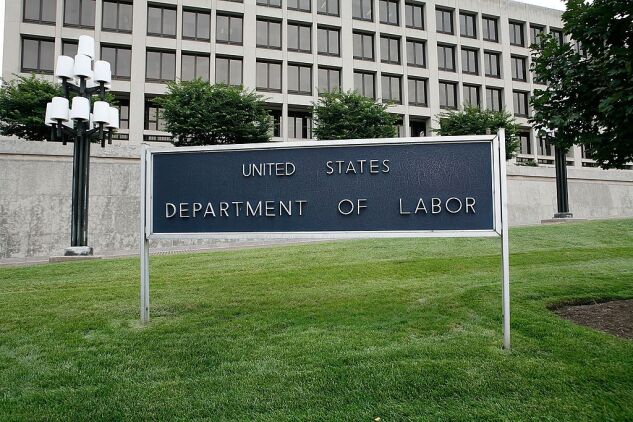Monday morning musings for workplace watchers.
DOL Staff Can WFH | Writing Laws Post-Loper Bright
Rebecca Rainey: After cracking down on the practice earlier this year, the US Labor Department is relaxing its return to office policy, expanding when agency staff can use informal telework to start or finish out their workday.
An updated policy memo sent out by DOL’s assistant secretary for administration and management clarified to subagency leaders that they can approve “situational” telework for employees who are attending doctors appointments, are sick but able to work, or are traveling for work.
“In these infrequent occurrences, situational telework may be used to help staff perform mission critical work requirements, meet important demands in a timely manner, ensure essential work goes uninterrupted, and maintain continuity in their work without sacrificing the integrity of the mission,” the July 28 memo obtained by Bloomberg Law said.
DOL agency leaders were previously only permitted to approve informal telework in weather or safety emergencies, due to lack of space at the office, when time-sensitive work must occur outside of regular working hours, or other limited instances. Staff at DOL’s headquarters are expected to be in the office during work hours, unless they have an accommodation, according to one staffer.
The change in tone comes despite President Donald Trump mandated that federal agencies take all necessary steps to terminate remote work arrangements and require employees to return to work in-person “on a full-time basis.”
In-person attendance at the DOL has also been put under a magnifying glass by Republicans, namely House Education and the Workforce leaders Reps. Virginia Foxx (N.C.) and Tim Walberg (Mich.), who frequently grilled the Biden administration to hurry up and get federal workers back in the office post-Covid-19 shutdowns of federal offices.
Earlier this year Walberg called on DOL leadership to immediately implement Trump’s memo directing agency heads to require federal workers to return to office.
“This important memorandum sets the stage for the Department of Labor (DOL) to fulfill a request that Committee Republicans have been making consistently for more than three years,” he said.
The DOL didn’t respond to a request for comment on the memo.
Robert Iafolla: Congress should instruct regulators to consider specific factors when developing policy in light of the loss of judicial deference to their interpretations of ambiguous laws, a former DOL official said at a recent Senate hearing.
Such directives will cause agencies to slow down, “show their math,” and design policy as if lawmakers were overseeing their work, said Chad Squitieri, a Catholic University law professor who served as a special assistant to Labor Secretary Eugene Scalia.
“Congress of course can’t know what’s 20 years in the future, but they might know we’re always going to care about the American worker, so let’s make sure that the agency does an analysis of that going forward,” he said.
A Senate homeland panel heard from Squitieri and other witnesses last week during a hearing on how Congress should respond to the US Supreme Court’s 2024 decision in Loper Bright Enterprises v. Raimondo.
The decision striking down the Chevron doctrine’s mandatory deference to ambiguous laws presents a challenge to lawmakers who’ve partially relied on using vague statutory language to reach the consensus necessary to pass legislation.
Both Loper Bright and the major questions doctrine, which requires clear statutory authorization for agencies to regulate issues of vast economic and political significance, “seem to be the Supreme Court saying to Congress: ‘Suck it up and do your job,’” Sen. James Lankford (R-Okla.) said at the hearing.
“So for me, this is a pretty clear clarion call to Congress to go back, do more work, pass more legislation,” Lankford said. “We’ve lost our muscle memory of passing legislation. We’ve increased our muscle memory of passing the buck.”
Lankford asked for help developing a vocabulary list of words that Congress should avoid using because they’re too vague, such as “appropriate” and “reasonable.”
“Science-based” and “protective of public health” are too ambiguous, said Susan Dudley, a law professor at George Washington University who led the White House’s Office of Information and Regulatory Affairs during the George W. Bush administration.
Lankford also questioned the witnesses about Congress getting an OIRA-like office.
Dudley said it wouldn’t need to be as large as the White House’s regulatory office, which has about 50 people, to assist drafting legislation and to review existing regulations.
To contact the reporters on this story:
To contact the editors responsible for this story:
Learn more about Bloomberg Law or Log In to keep reading:
See Breaking News in Context
Bloomberg Law provides trusted coverage of current events enhanced with legal analysis.
Already a subscriber?
Log in to keep reading or access research tools and resources.


